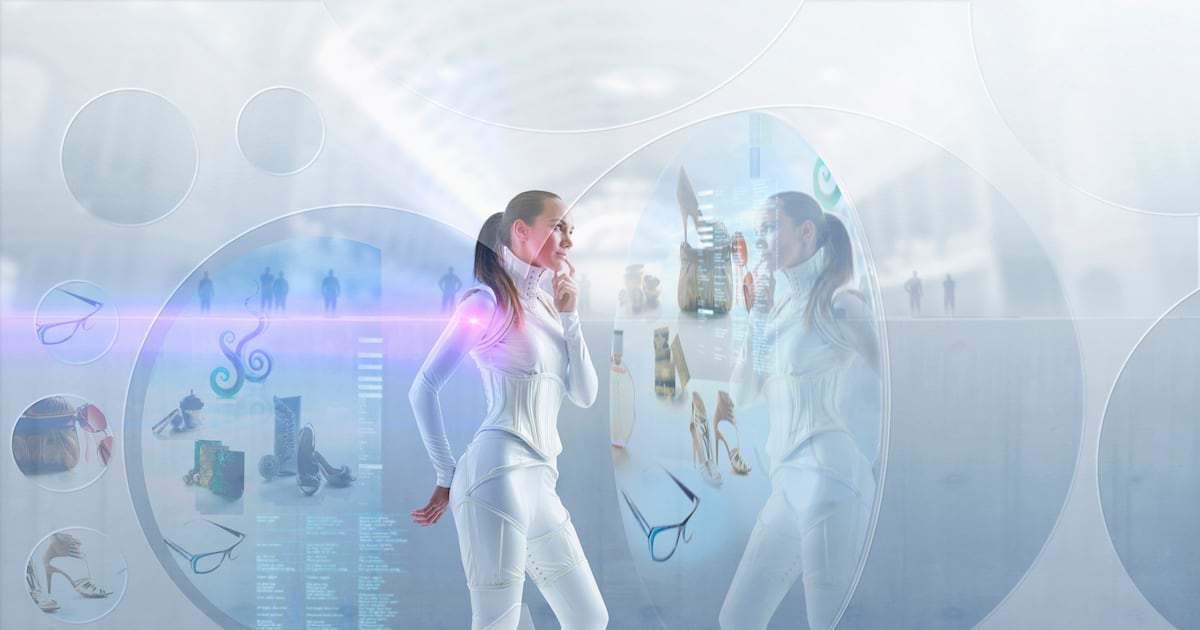
Projections indicate that the global AI beauty market, valued at $2.68 billion in 2022, is expected to grow at a compound annual growth rate (CAGR) of 14.4%, reaching approximately $6.8 billion by 2027, as reported by AI beauty platform Arbelle.
Aligned with these growth projections, Alice Chang, Founder and CEO of Perfect Corp predicted in an interview with CosmeticsDesign that in 2025, the integration of artificial intelligence (AI) and augmented reality (AR) technologies will transform the beauty industry, offering hyper-personalized experiences, streamlining product development, and bridging the gap between physical and digital retail.
We spoke to Chang for her insights and predictions about how these technologies will shape the future of cosmetics and personal care in the coming year.
AI assistants redefining customer interaction
Chang highlighted the integral role AI assistants and chatbots will play in shaping beauty retail’s future. “AI-powered chatbots will guide consumers through product choices based on everything from general product preferences to skin type and specific concerns, ensuring that each interaction is uniquely tailored to each consumer’s needs,” she said.
These tools will evolve into sophisticated virtual beauty advisors capable of providing 24/7 guidance. “They will be capable of understanding and responding to complex beauty queries, such as concerns about specific skin conditions, ingredient sensitivities, or how to achieve particular makeup looks,” Chang explained.
AI’s influence will also extend to product innovation. “They will play a crucial role in product development and testing for beauty brands,” Chang added.
“Brands will rely on AI to analyze consumer feedback, identify emerging trends, and simulate how new products will perform across different demographics and skin types.”
The power of proprietary AI models
Proprietary AI models offer beauty brands a unique competitive advantage, Chang explained, as they can be tailored specifically to the nuances of the industry. “Unlike general-purpose models like ChatGPT, proprietary AI can be fine-tuned to understand the nuances of beauty product formulations, skin types, cosmetic trends, and consumer behavior,” she said.
Perfect Corp.’s MakeupGPT and SkincareGPT AI assistant frameworks are examples of this tailored approach. “These tools help transform the consumer experience in beauty, providing personalized and detailed beauty advice to consumers in real-time,” Chang noted.
Despite the advantages, implementing proprietary AI can be challenging. “Proprietary AI models rely heavily on high-quality, diverse data on consumer preferences, skin types, product efficacy, and beauty trends to function accurately,” Chang explained.
She recommended that brands “partner with dermatologists, beauty influencers, or even academic institutions to collect a broad spectrum of data that’s both diverse and representative.”
Cost is another hurdle. “The development of proprietary AI is expensive, with costs associated with AI specialists, data scientists, hardware, software, and cloud services,” Chang acknowledged.
However, brands can start small. “Beauty brands can make their first foray into AI by implementing smaller-scale projects or leveraging pre-built AI platforms that can be customized for their needs, such as Perfect’s newly developed AI beauty assistant, PerfectGPT,” she said.
Addressing “de-influencing” with AI
The “de-influencing” trend, where consumers reject influencer-endorsed products in favor of authenticity, is reshaping beauty marketing strategies. “Consumers are increasingly aware of the motivations behind influencer content and are pushing back against what they have come to realize are endorsements of products that don’t truly fulfill their individual needs,” Chang said.
AI offers a solution by helping consumers make informed, sustainable choices. “The personalization that AI offers can help shoppers find what they actually need, instead of adhering to an influencer’s paid promotion of a product that might not fulfill their unique needs,” Chang explained.
Chang also pointed to AI’s role in sustainability. “AI-powered virtual try-ons allow consumers to ‘try’ makeup, skin care, or hairstyles and colors virtually before committing to a purchase, which reduces the likelihood of buying products that don’t work, decreasing returns and product waste,” she said.
Seamless shopping across platforms
Chang emphasized the importance of integrating AI and AR tools to create a seamless consumer shopping journey across online, in-store, and social platforms. “With AR, consumers will be able to try beauty products like makeup, skin care, or hair color virtually, whether they’re shopping on a brand’s website, in-store through interactive mirrors, or via social media platforms,” she explained.
This technology also enhances in-store experiences. “In physical stores, AI-powered AR mirrors can provide personalized beauty experiences by suggesting products based on a customer’s face shape, skin tone, and personal preferences,” Chang said.
The future of social commerce will further bridge the gap between browsing and buying. “Social commerce will be an even more central part of the beauty shopping experience,” Chang stated.
“The integration of shopping capabilities directly within platforms like Instagram, TikTok, and even YouTube,” she added, “will allow consumers to make purchases without ever leaving their social feeds.”
Advancing product development with AI and AR
“AI can help brands leap from a reactive approach to a proactive one when it comes to product development,” Chang said. “Consumer data can support the formulation of products that are not just universally popular but tailored to individual preferences and needs.”
AR adds another layer of innovation. “AR can give product designers and consumers the ability to ‘test’ different formulations and designs without waiting for physical samples to be manufactured,” Chang explained.
This capability allows rapid prototyping and iteration, shortening product development cycles while ensuring alignment with consumer preferences.
A roadmap for the future
Chang urged beauty brands to embrace data-driven strategies to stay competitive in 2025 and beyond. “My advice to beauty brands is to leverage the power of AI and data analytics to deeply understand your customers,” she said. “The future of beauty lies in personalization, be it in product recommendations, shopping experiences, or even skin care regimens.”
As the industry moves forward, Chang underscored the importance of staying adaptable. “The key is to stay agile, data-driven, and deeply connected to your customers’ needs and values, all while continuously adapting to the technological evolution that will shape the beauty industry over the next few years,” she concluded.

